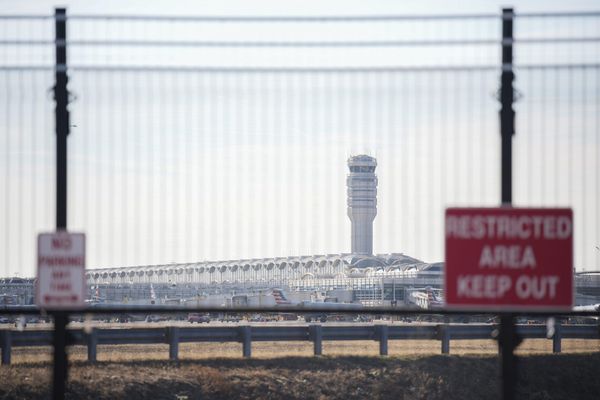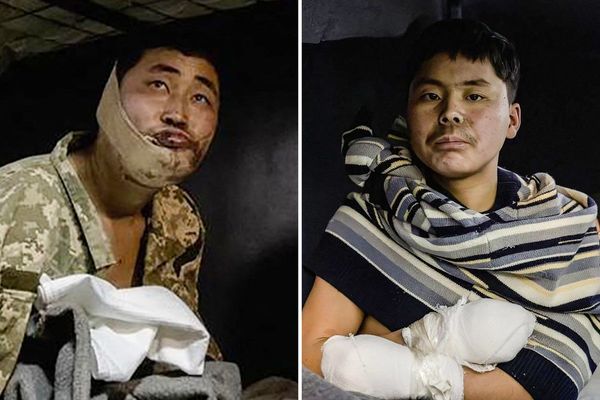
The cost to Ukraine of downing the “kamikaze” drones being fired at its cities vastly exceeds the sums paid by Russia in sourcing and launching the cheap Iranian-made technology, analysis suggests.
A total of 161 Shahed-136 drones, one larger Shahed-129 and four even larger unmanned attack vehicles known as Mohajer-6s have been shot down by Ukrainian air defences in the last month.
With the price of the Iranian-made Shahed-136s standing at €20,000 to €50,000 for each vehicle, the total cost to Russia of the failed drone attacks unleashed on Ukraine in recent weeks is estimated by military analysts at the NGO Molfar to be between $11.66m (£10.36m) and $17.9m (£15.9m).
Ukraine has deployed a host of weaponry to bring down the drones, including MiG-29 jets, C-300 cruise missiles, Nasams ground defence systems and small-arms fire.
The estimated cost to Ukraine stands at more than $28.14m (£25m), according to the analysis, which is based on open sources. The data includes drones launched between 13 September and 17 October.
It highlights the low financial cost to Russia of the drone attacks, which are continuing to unleash terror in Ukraine, killing civilians and striking at the country’s energy infrastructure.
Artem Starosiek, Molfar’s chief executive, said the use of drones should nevertheless be seen as a sign of Moscow’s weakness. “Russia is losing this war. If they are ordering drones from Iran it means they don’t have their own weapons.”
The US accused Moscow of war crimes following the latest drone and missile attacks on Kyiv and elsewhere, which struck civilian apartments as well as critical infrastructure. Nearly a third of Ukraine’s power stations have been destroyed since Monday last week and tens of people have been killed.
Iran has denied providing Russia with weaponry for its war in Ukraine. However, US and Ukrainian intelligence has claimed 600 drones were ordered by Russia early in the summer, of which it is estimated between 250 to 300 have been deployed.
Ukraine’s president, Volodymyr Zelenskiy, claimed last week, however, when speaking via video link at a G7 summit, that an additional 2,400 “Shaheds” had been ordered by the Russian military from Tehran, although he did not specify the type. “These are on the move,” said Starosiek.
Ukraine’s armed forces have had a high degree of success in shooting down the Shahed-136 drones, rebranded as Geran-2 by Russia, which are low flying and slow.
About 60% had been destroyed in the air, according to an earlier analysis by British intelligence on 6 October. But the Molfar data suggests up to 80% of the 208 Shahed-136s launched up to 17 October were shot down. According to Molfar’s data, about 70% of the drones were launched in daylight before noon.
On Wednesday, Ukraine’s air force reported that as of that morning 223 Iranian-made Shahed-136 drones had been downed since 13 September, when the first drone was shot down. On Monday, Russia attacked Ukraine with 43 drones, of which 37 were destroyed, a spokesperson added.
Starosiek said the low flight path of the drones made it difficult, for ground defences to pick them up and that “drone catching” technology was required to further improve the rate of destruction.
He said: “We should know about these drones before they’re moving over the city because if you’re hitting these drones, it could fall down and hit a large amount of people.”
The drone attacks continued on Wednesday. Vitaliy Kim, the governor of Mykoliav, in the south-east of the country, said Ukrainian forces had shot down 13 “kamikaze” drones overnight by anti-aircraft defences and soldiers of the national guard.







